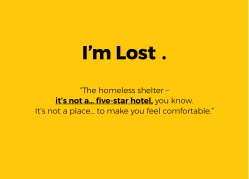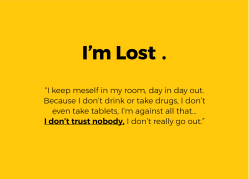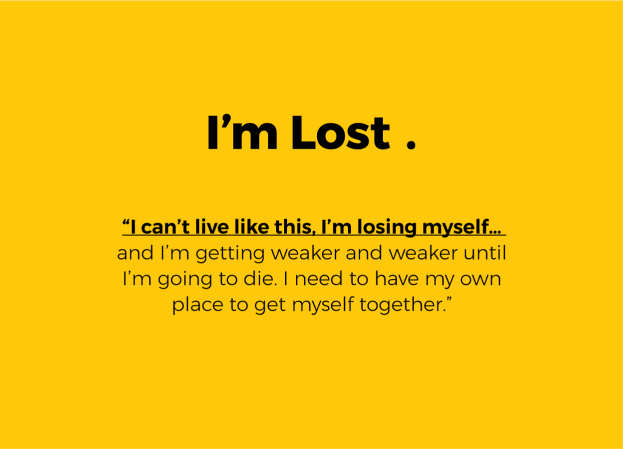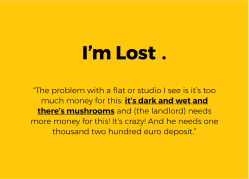
Vulnerabilities, resilience and quality-of-life in a homeless population.
Last Resort, compiled and written by Joe Finnerty, Senior Lecturer at the School of Applied Social Studies, University College Cork, is based on 69 one-to-one interviews conducted over an eighteen-month period with 24 men and 12 women staying at our emergency shelter. 26 participants were interviewed twice or more.
The report identifies their routes into homelessness, explores some of the vulnerabilities that set them on that journey and highlights how their experiences of long-term stays in emergency accommodation have added to their vulnerabilities, particularly around social exclusion, morale and aspirations for the future, and the challenges of finding a place to call home.
The Findings in Last Resort

- Over half of respondents had been staying in our emergency shelter for more than six months.
- Almost three-fifths of respondents had been rough sleeping immediately prior to their current emergency shelter stay.
- One quarter of respondents had a history of State care.
- Over one-third of respondents had left school before or on completion of their Junior Cycle or equivelant.

- Respondents most commonly nominated both their physical and mental health as ‘average’.
- Almost three in ten respondents reported having received a diagnosis of mental illness of some kind.

- Four in five respondents reported high levels of lifetime heavy use of alcohol and drugs.
- One-quarter of respondents reported drinking ‘most days or daily’; almost half of respondents had not drank alcohol in the previous three months.
- Almost half of respondents reported using drugs other than alcohol ‘most days’ or ‘daily’; one-third of respondents reported not having used any drugs in the previous three months.
Last Resort highlights the study group’s experience of social exclusion and stigma as a result of being homeless.

- Around two in seven respondents reported that they ‘seldom or never’ saw family or friends, and they had no-one to call on in an emergency or that they ‘liked to keep to themselves’.
- Just over half of respondents either ‘strongly agreed’ or ‘agreed’ with the statement, “I feel left out of society”.
- Nine out of ten respondents ‘strongly agreed’ or ‘agreed’ with the statement, “Some people look down on me because I’m homeless”.

Last Resort found that the most common barriers among the study group to finding accommodation – and exiting homelessness, include:
- The poor quality of flats available.
- The narrow range of accommodation where Housing Assistance Payment is available.
- Discrimination by private landlords and estate agents against homeless people.
- Lengthy waiting lists for social housing.